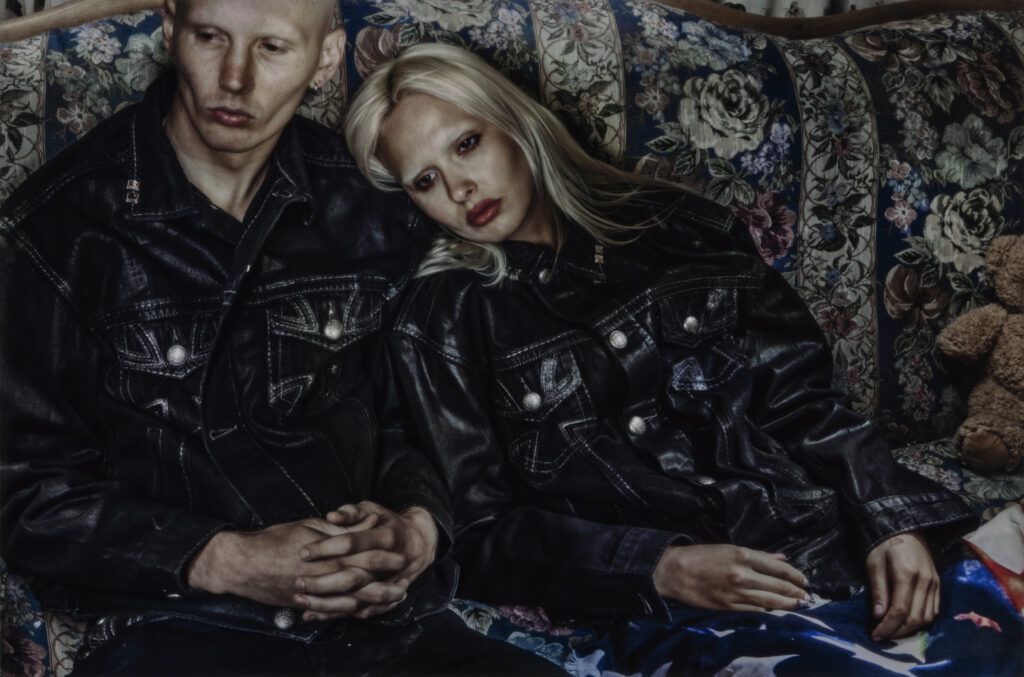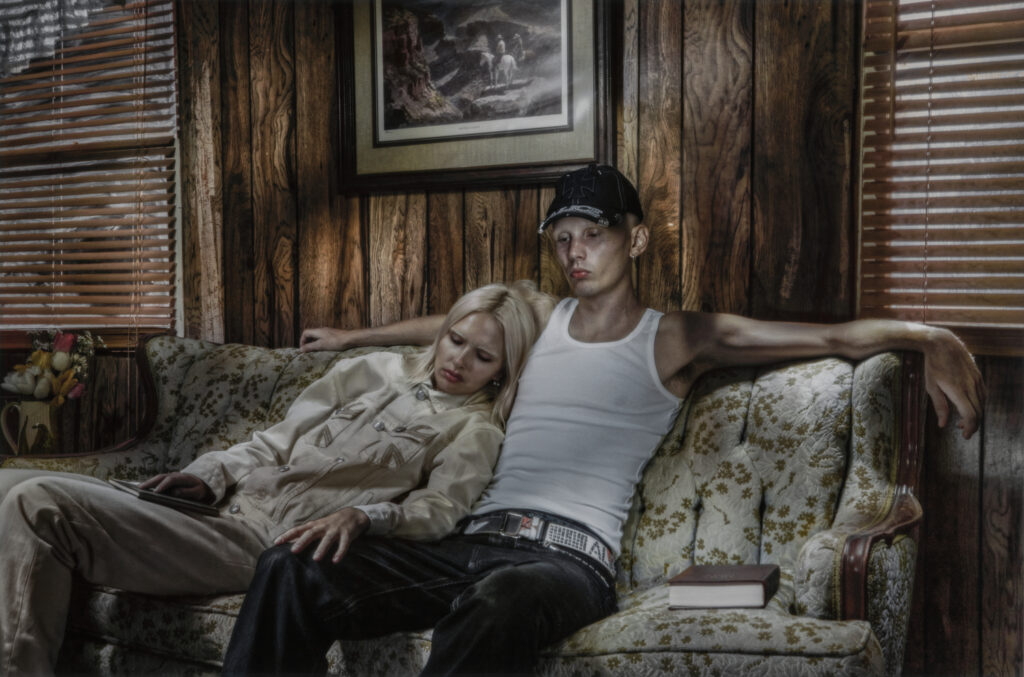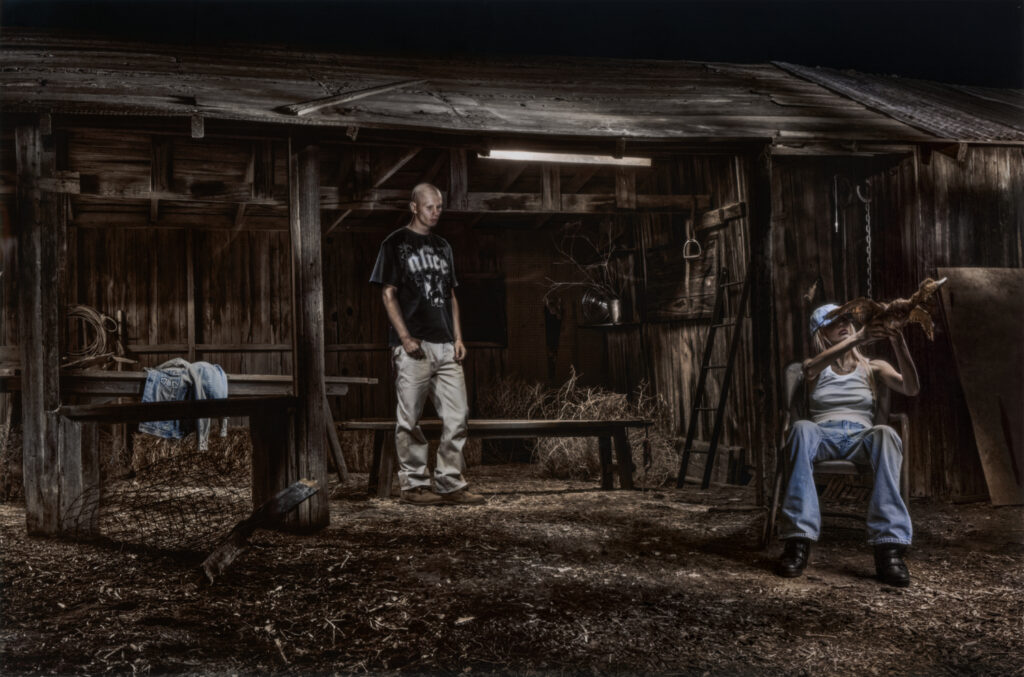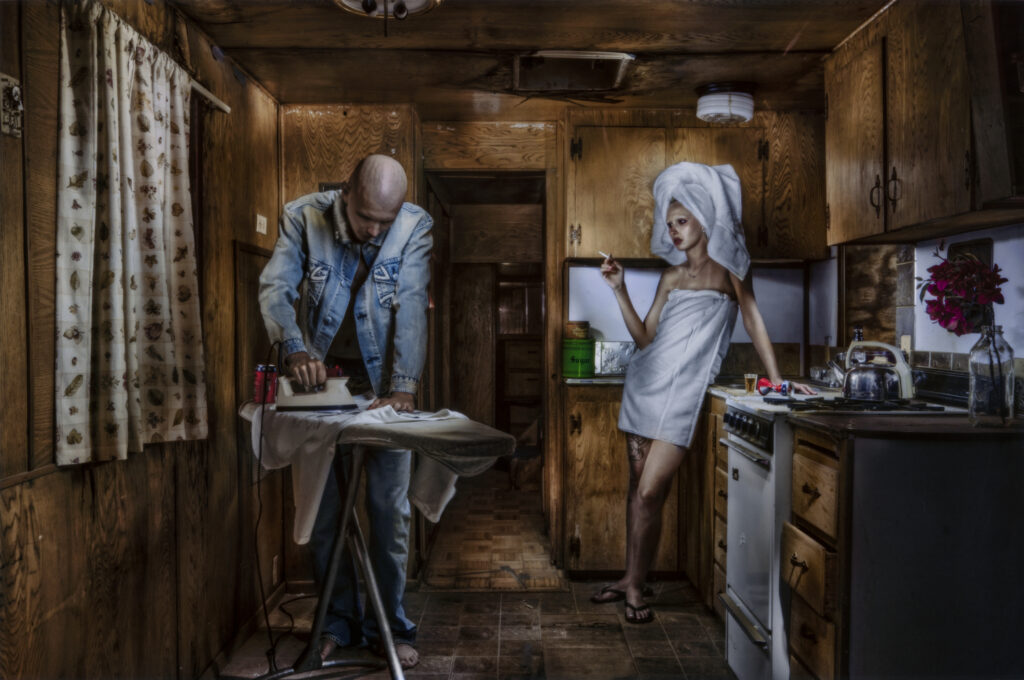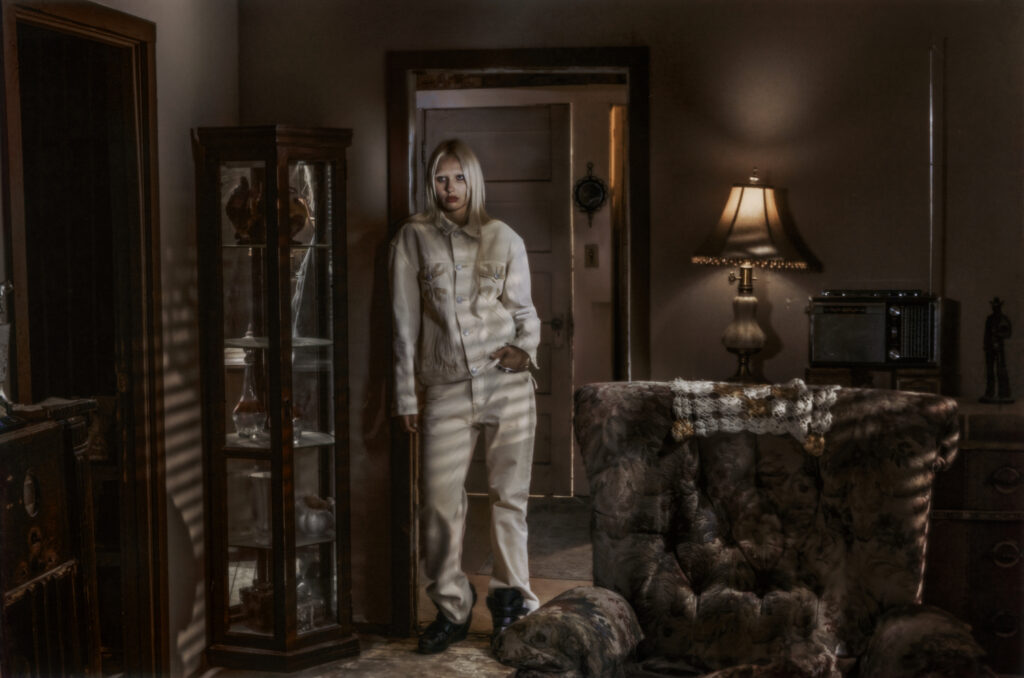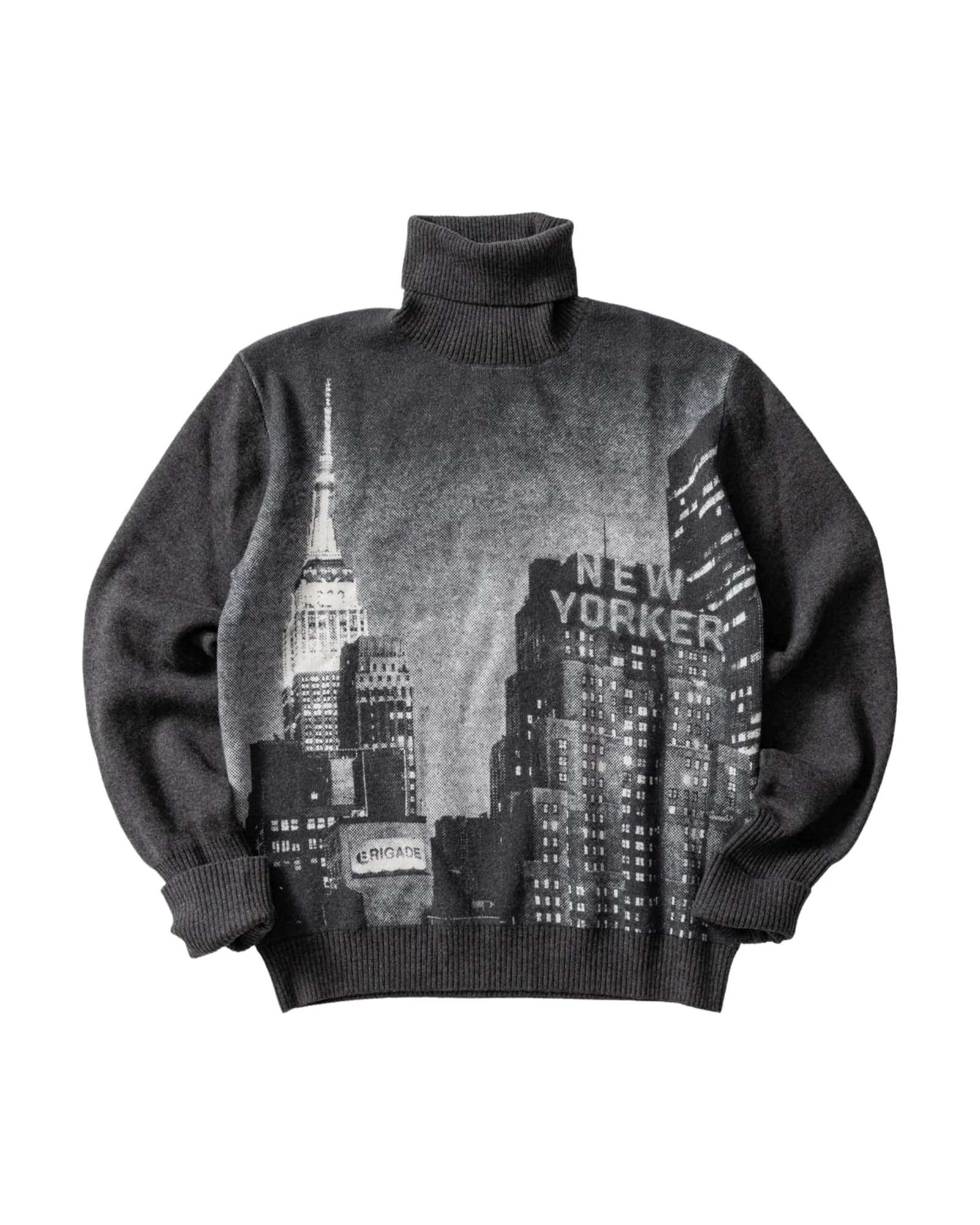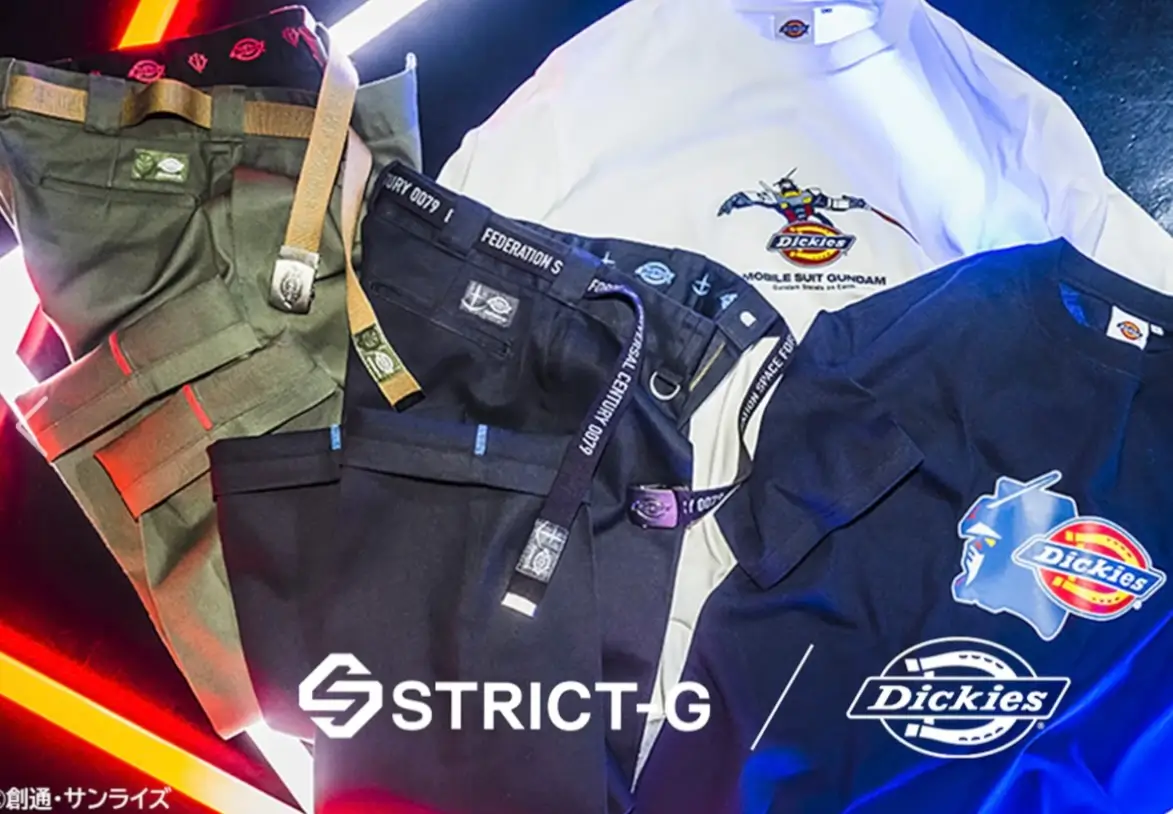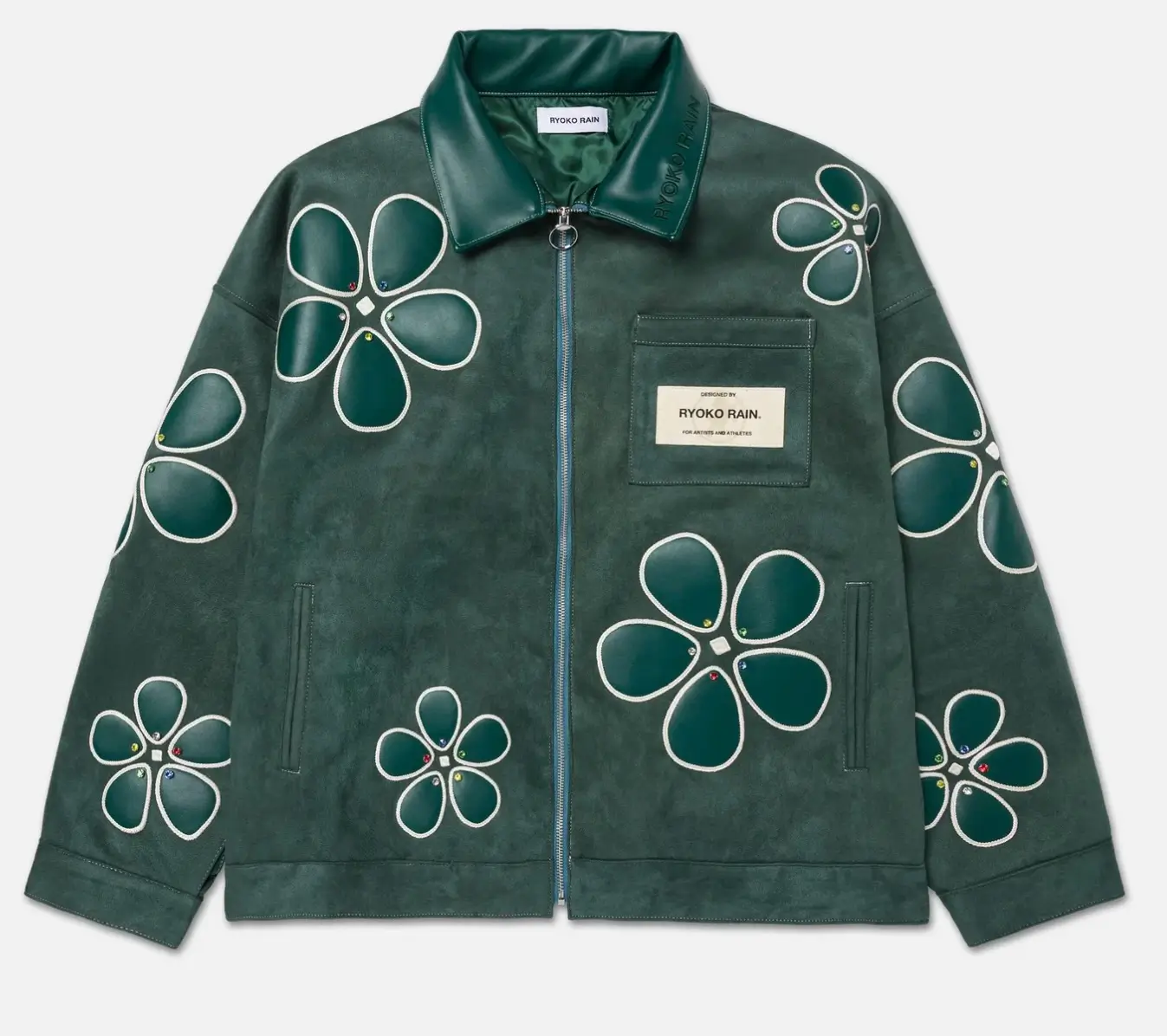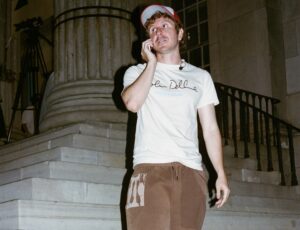Every generation finds itself looking backward for inspiration, and in fashion, the early 2000s has become the era du jour. The last half-decade has been dominated by Y2K revival: low-rise jeans, logomania, rhinestones, micro-minis, and a rebellious approach to styling that blurred skate, club, and luxury codes. Into this climate, Australia’s most notorious denim house, Ksubi, joins hands with Alice Hollywood, the fresh imprint from Los Angeles-based designer Shane Gonzales, to launch a 14-piece capsule collection that bottles the essence of a decade where denim was both a uniform and a weapon of self-expression.
The Players: Ksubi and Shane Gonzales
Ksubi, founded in 1999 in Sydney, has long been more than just a denim brand. Emerging at the height of skate-punk counterculture, the label became synonymous with rebellion, independence, and artistic defiance. Their jeans—often marked with signature cross embroidery—were slashed, burned, painted, and shredded in ways that made traditional denim houses nervous. Yet it was precisely this irreverence that carved a loyal following among musicians, artists, and subcultural tastemakers.
Shane Gonzales, meanwhile, made his name as the creative force behind Midnight Studios, a label rooted in punk graphics, DIY irreverence, and a heavy Los Angeles aura. His new project, Alice Hollywood, is both a continuation and a maturation—an exploration of luxury with grit, rooted in Southern California subcultures but sharpened with couture-like attention. Pairing him with Ksubi is more than a subtle converge; it is a meeting of minds who share a respect for destruction as much as creation.
The Capsule: 14 Pieces of Controlled Chaos
The collection, titled “Ksubi by Alice Hollywood,” brings together rigid denim, leatherwork, and heavyweight jersey staples. It leans into early-2000s design cues—oversized silhouettes, bootcut proportions, and unapologetically graphic applications—without being a pastiche.
Key elements include:
-
Oh G Jackets: Oversized denim jackets in Black Wax, Ivory, and Punk Eternity Blue washes. Their silhouettes recall the jackets that dominated skater parking lots and backstage corridors in the early aughts, but the fabrications—premium rigid denims—elevate them into collector territory.
-
Toro Jeans: Relaxed, bootcut jeans that flirt with flares, uniquely in tune with the resurging appetite for alternative silhouettes beyond the skinny and the straight leg.
-
Laser-Cut Leather Appliqués: Sharp, graphic motifs etched into denim panels, a nod to punk customisation and Gonzales’s own obsession with leather-bound detail.
-
Heavyweight Tees and Hoodie: Boxy tees in black and white with exclusive artwork, and a twin-zipper hoodie in a vintage black wash that recalls the layering obsessions of MySpace-era styling.
-
Accessories: Alice’s signature caps, now washed in Ksubi denim, alongside a bandana and leather belt. Each accessory anchors the collection’s punk undertones and street-luxury positioning.
Campaign and Cultural Positioning
Shot by LA photographer Neri, the campaign takes an intimate approach rather than a glossy spectacle. The images linger on American youth culture—sunlit backyards, cracked sidewalks, empty highways—evoking the paradox of adolescence: restless energy and slow afternoons.
The decision to frame the collection in this way signals intent. Rather than fetishising 2000s celebrity culture—red carpets, paparazzi flashbulbs, and tabloid chaos—Ksubi and Alice Hollywood root their narrative in the people who wore denim as armor during that period: skaters, punks, party kids, dreamers. This lens makes the collection not just a nostalgia exercise but a reclamation.
Early-2000s Denim: A Brief History
To understand the resonance of this collection, one must revisit denim’s cultural arc in the early 2000s. Jeans became a second skin for entire youth movements. From the baggy silhouettes popularised by Limp Bizkit and Blink-182 to the meticulously distressed flares of Paris Hilton and Nicole Richie, denim served as both rebellion and aspiration. Brands like Diesel, True Religion, Evisu, and Von Dutch set the tone for loud washes and bold embellishments.
At the same time, subcultures manipulated denim into something darker. Skaters shredded knees and cuffs through hours of asphalt grinding. Punks covered theirs in patches, safety pins, and sharpie scrawls. Emo kids embraced tight black cuts. Each faction ventured a slow cultivated way to turn mass-produced denim into personal proclamation.
Ksubi emerged at the crux of this moment, a brand unafraid of subversion. Their infamous runway stunts—releasing live rats on stage, for instance—cemented their reputation. To partner with Gonzales, whose personal archive is steeped in the same era, is to double down on denim’s role as a vessel for identity.
Streetwear Meets Luxury: A Continuing Dialogue
One of the most striking aspects of the collaboration is its balancing act between streetwear credibility and luxury sensibility. Ksubi’s DNA has always been street-level, but in recent years the brand has successfully infiltrated luxury retail environments, often sitting beside Balenciaga or Off-White. Alice Hollywood, by contrast, is still carving out its place but clearly aims for a hybrid model: refined execution with raw attitude.
This capsule, then, reads as a manifesto for how denim can live across strata. The rigid denims are crafted with the attention of heritage luxury houses. The appliqués, though punk in aesthetic, are technically sophisticated. Even the campaign speaks to a slower, romantic notion of youth—a far cry from the relentless churn of fast fashion.
The Role of Accessories
Caps, bandanas, and belts may seem secondary, but in early-2000s fashion they were crucial markers. A Von Dutch trucker hat could instantly signal cultural belonging. A studded belt was a rite of passage for emo teens. Bandanas tied to belt loops carried semiotic weight, from skate crews to music videos.
By reintroducing these items, Ksubi and Alice Hollywood acknowledge the micro-details that defined the decade. Alice’s caps, already symbols within certain circles, gain new life when washed in Ksubi’s indigos and blacks. The belt and bandana serve as anchors, ensuring the collection speaks fluently to both hardcore nostalgists and new adopters.
Fashion Cycles and the Timing of Nostalgia
Why 2025? Fashion’s cyclical nature is well documented, with 20-year revivals serving as a reliable tempo. Just as the 1990s saw a revival in the 2010s, the early 2000s are currently at their cultural high tide. TikTok algorithms resurface MySpace aesthetics. Gen Z thrift shoppers hunt for low-rise jeans once derided by Millennials. Music videos reference mall goths and scene kids.
In this environment, a collaboration that is authentic—rather than opportunistic—is crucial. Ksubi and Gonzales are not outsiders capitalising on the trend; they are insiders who lived it. Their authority makes this capsule resonate beyond surface styling.
The Gender Fluidity of the Capsule
Another dimension worth noting is the collection’s refusal to gender itself strictly. Oversized jackets, relaxed jeans, and boxy tees are inherently unisex. In the early 2000s, denim was one of the few categories that naturally blurred gendered lines—boyfriend jeans, baby tees, skater fits all crossed boundaries.
By echoing that ethos in 2025, the collaboration feels doubly relevant. It not only revives a nostalgic era but aligns with the contemporary embrace of fluid silhouettes and cross-gender styling.
Punk, Skate, and Moto: The Triple Thread
Three cultural threads converge in this capsule: punk, skate, and moto. Each carried denim as a uniform.
-
Punk: The appliqués and belts call back to anarchic energy, DIY graphics, and safety-pin couture.
-
Skate: The relaxed silhouettes and heavy tees speak directly to skateboarding’s functional yet rebellious dress codes.
-
Moto: Leather details and rigid fabrications channel biker culture, where denim and leather jackets protected as much as they styled.
The climax blends of these threads in a single capsule distills the essence of early-2000s California subculture, filtered through Ksubi’s Australian irreverence.
More Than Nostalgia
“Ksubi by Alice Hollywood” is more than a throwback. It is a love letter to denim’s golden age, authored by two creatives whose DNA is stitched into that history. It reintroduces silhouettes once mocked, details once discarded, and accessories once derided, giving them the reverence of heritage.
In doing so, the collection doesn’t just bring the beat back; it reminds us that the beat never really left. Denim remains the most democratic, most rebellious, and most enduring fabric in fashion. And in 2025, thanks to Ksubi and Alice Hollywood, it feels brand new once again.
No comments yet.

